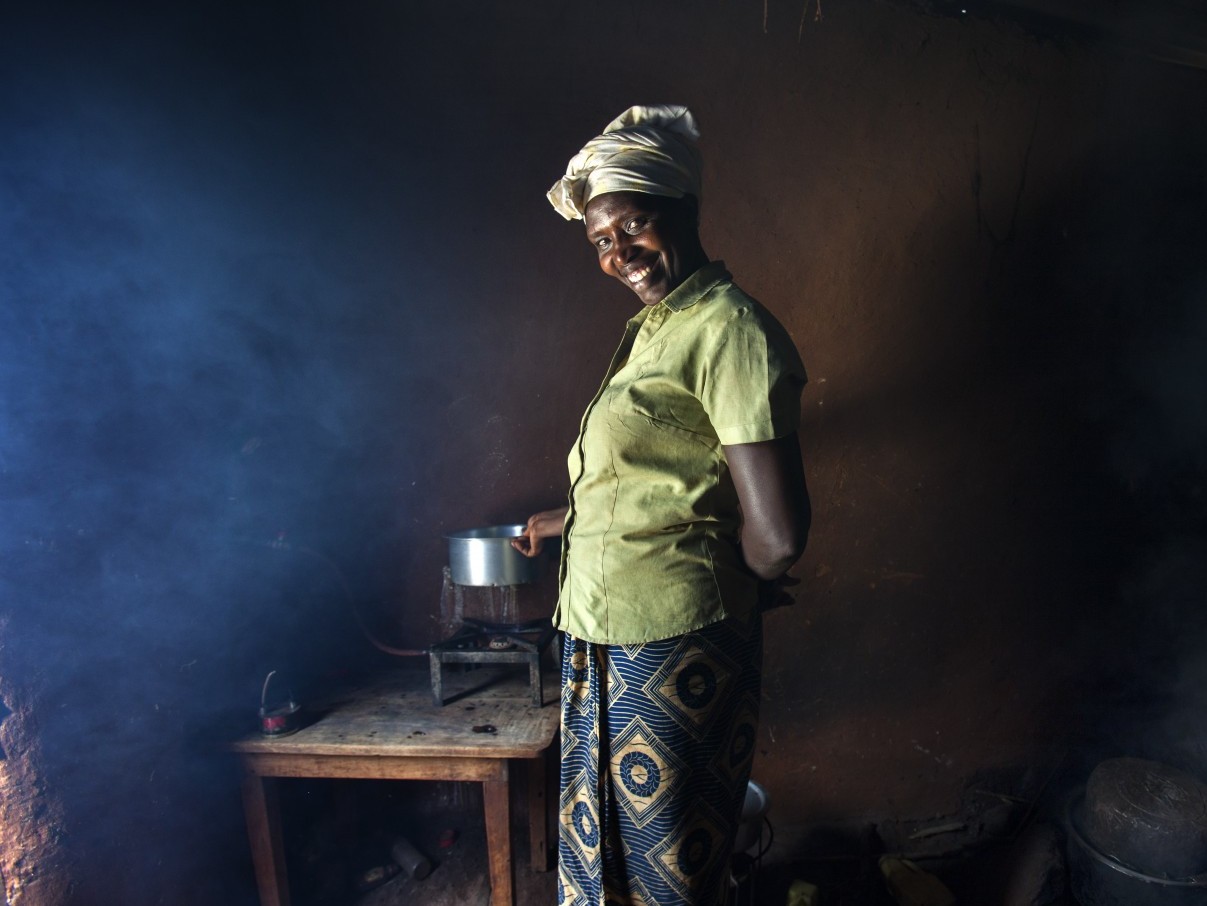Hand in Hand teams up with CARE to fight poverty in Rwanda
19 Mar 2014

Hand in Hand International and CARE International are teaming up to fight poverty in Rwanda through grassroots entrepreneurship.
The three-year, US $3.2 million partnership blends the best of both organisations, combining CARE’s experience mobilising savings groups with Hand in Hand’s expertise training rural populations, mostly women, to start their own businesses. The project is expected to create 80,000 jobs.
“The Hand in Hand network aims to create 10 million jobs by 2020. To get there, we need to partner with others,” said Hand in Hand Eastern Africa CEO Pauline Ngari. “Working with CARE represents a huge step forward. Together we can make a real difference.”
John Plastow, CARE International UK’s programme director, agreed.
“CARE has found that community savings groups meet the need for savings and credit at the very bottom rung of the world’s economic ladder. They create a platform from which the poor can advance to receive the more sophisticated financial services that they inevitably need as their resources, skills and confidence grow,” he said. “This partnership is a fantastic opportunity to pool our expertise on savings-led microfinance with Hand in Hand International’s long experience of job creation.”
A CAREing Hand
CARE International has been involved in microfinance since 1991, when the organisation’s team in Niger developed the first Village Savings and Loan Association (VSLA). The model mobilises groups of 10 to 25 members to pool their money, enabling communities overlooked by traditional institutions to access credit. So far, with help from partners including Barclays, the program has benefited more than 3.1 million participants in 34 countries.
Meanwhile, more than 4,500 miles away in rural south India, Hand in Hand developed a savings and enterprise programme of its own: the Job Creation Model. The model is similar to CARE’s but adds an additional element of business training, including help accessing markets, to members of VSLA-style Self Help Groups. To date, more than 1.6 million jobs have been created in 10 countries and counting.
Given both organisations’ common objectives and similar approaches, Hand in Hand International and CARE agreed to establish a partnership to scale up operations in Rwanda.
Why Rwanda?
Rwanda has come a long way since the 1994 genocide claimed some 800,000 lives. According to the World Bank’s 2014 ‘Doing Business’ report the country is second in Africa in terms of overall ease of doing business, while the UNDP reports a 12 percent drop in the poverty rate between 2006 and 2011. But there is still a long way to go. More than 90 percent of the workforce remains engaged in agriculture, often at subsistence levels, and some 25 percent of Rwandans say they’ve gone a full day without a meal in the last three months. It is precisely this mixture of poverty and promise and that makes Rwanda ripe for our programme.
In the Eastern Province districts where our programme is based, only 20 percent of adults polled by Hand in Hand said they had an “income generating activity”, more than a third did not have a mattress, and only 15 percent owned a tool as basic as a pickaxe. In other words, the need for training and finance is urgent.
Our goal
Together, Hand in Hand International and CARE International will do two things: add a business training component to CARE’s existing VSLAs and mobilise thousands more Rwandans to join new ones. The program will draw on technical support from in-country experts and staff from Hand in Hand Eastern Africa, based in neighbouring Kenya. Our ultimate goal is to develop a far-reaching model of job creation in Rwanda, enabling millions of the most disadvantaged people in the country to work their way out of poverty.
To start with, we plan to:
- Create 80,000 sustainable jobs, 60,000 of them for women, by 2015
- Increase household income, savings and asset accumulation amongst VSLA members
- Improve financial knowledge, skills and confidence to make financial decisions amongst VSLA members
- Increase skills to develop small business and income generating activities of VSLA members
